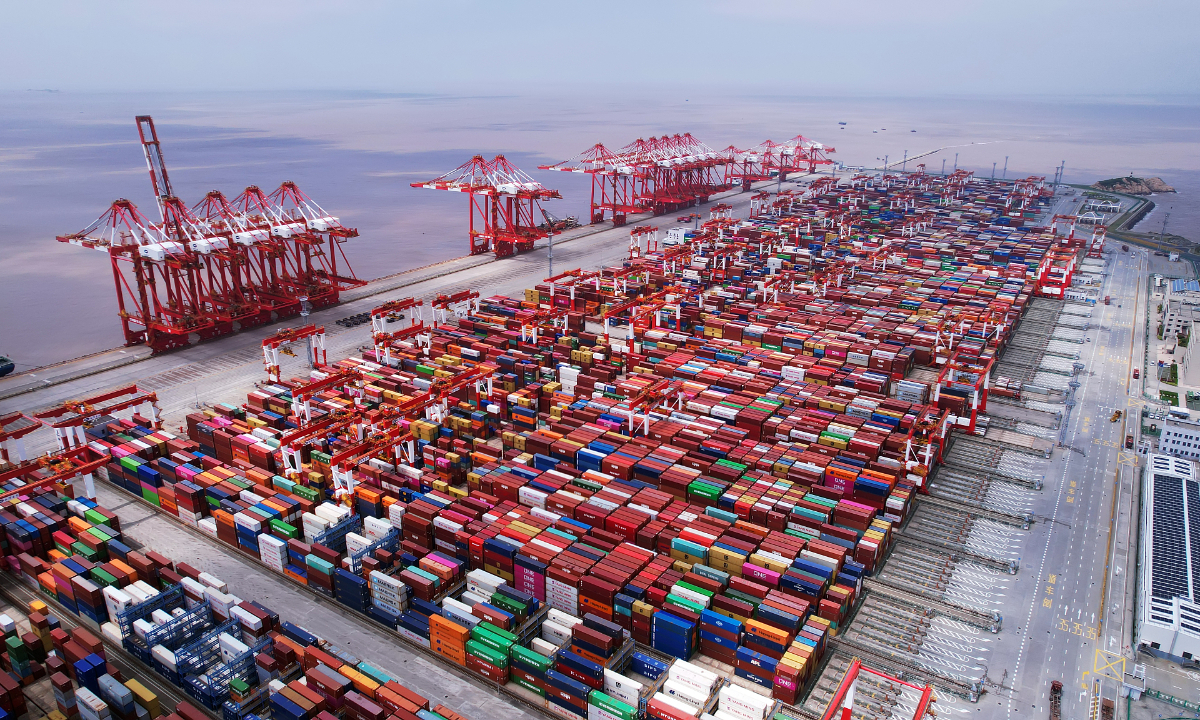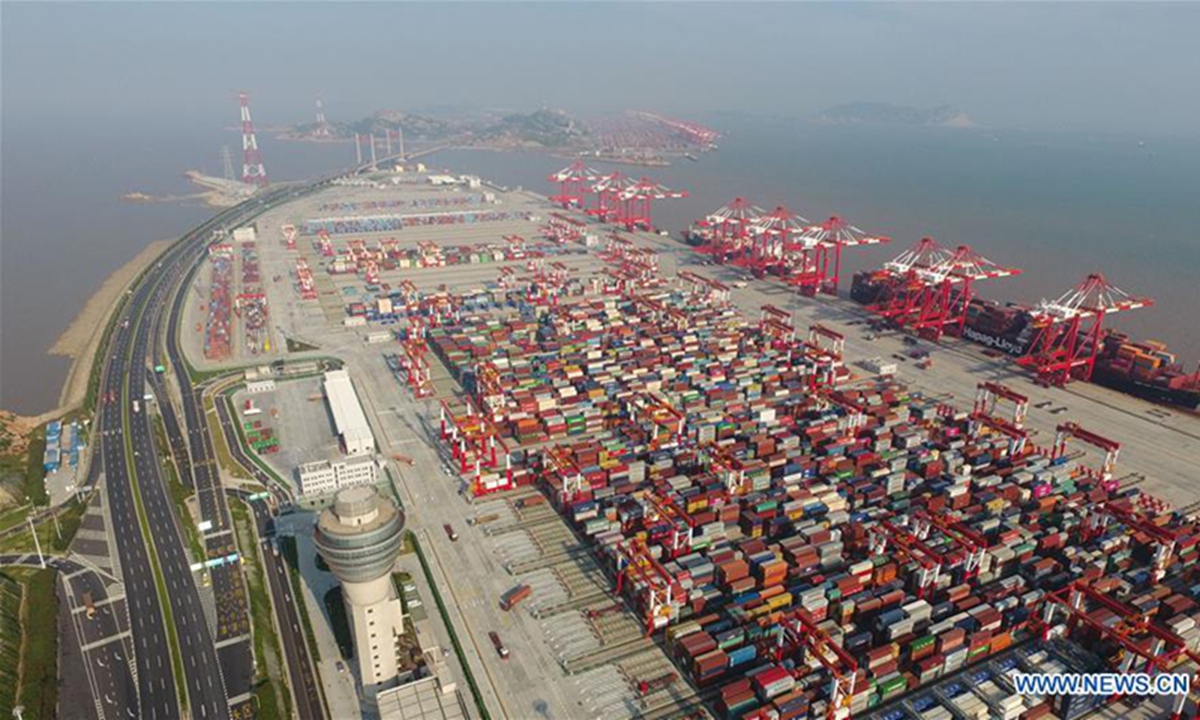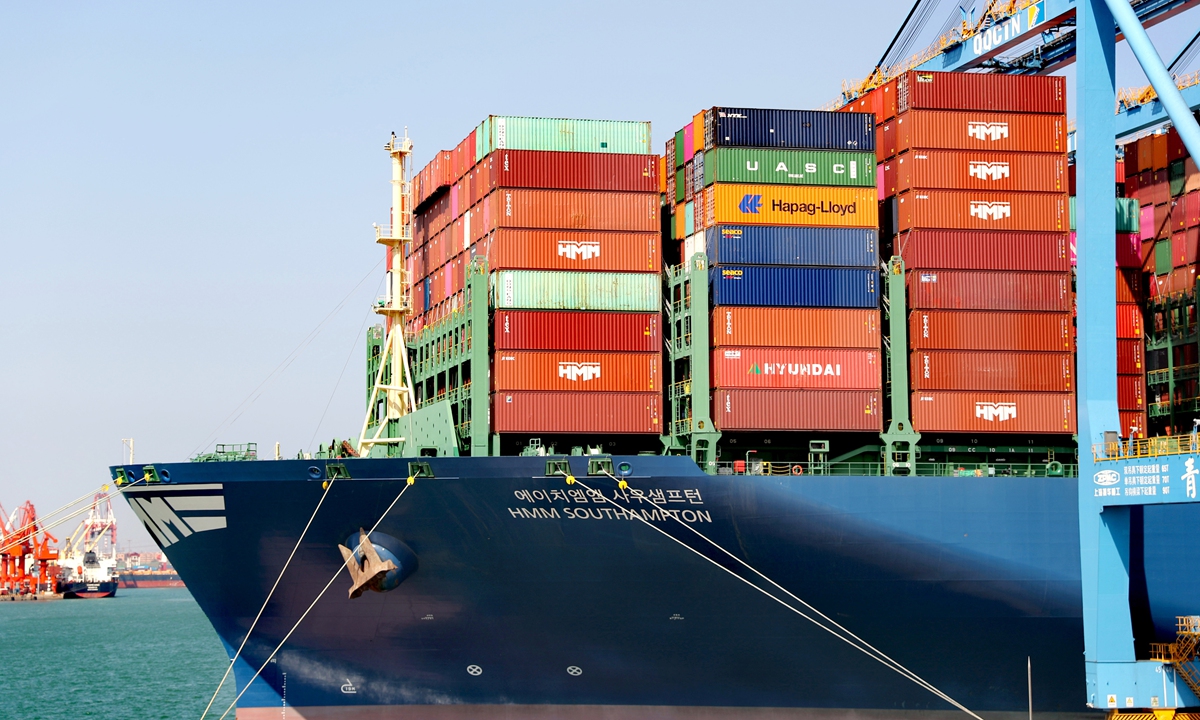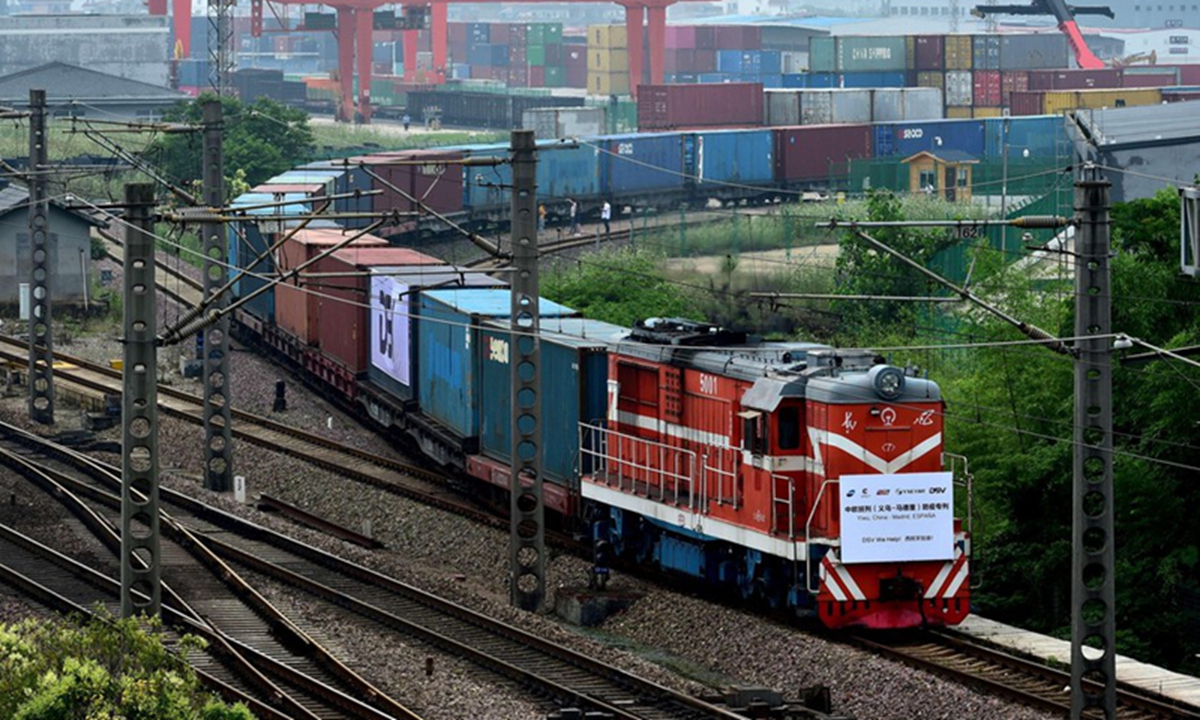As Red Sea tensions linger, companies navigation rising ship rates, turning to China-Europe freight train as alternative

The photo taken on on April 21, 2023 shows Phase 4 automated terminal at Yangshan Port in Shanghai. Photo: VCG
The protracted Red Sea crisis has entered its third month, with many shipping lines hesitant to resume services, while large shipping companies and international traders are facing soaring freight rates and fewer shipping slots.
Mediterranean cargo rates from Asia to Europe have more than doubled since November, amid growing market demand ahead of the Chinese Lunar New Year holidays in early February, industry insiders told the Global Times on Sunday.
Against this backdrop, the China-Europe freight train service, known for its efficiency, is emerging as a viable alternative.
In its latest statement that Maersk sent to the Global Times, the company said that it would halt all vessels bound for the Red Sea or Gulf of Aden in light of the recent incident involving the Maersk Hangzhou and high tensions in the region.
"The situation is constantly evolving and remains highly volatile, and all available intelligence at hand confirms that the security risk continues to be at a significantly elevated level. We have decided that all Maersk vessels due to transit the Red Sea or Gulf of Aden will be diverted south around the Cape of Good Hope for the foreseeable future," the company said in the statement.
The crisis is mainly reflected in longer shipping times, intensified uncontrollability of the supply chain, and the sharp rise of logistics costs, Zhong Zhechao, founder of One Shipping, an international logistics service consulting firm, told the Global Times on Sunday.
The detour adds an estimated 7,000 to 10,000 kilometers and seven to 10 days to the journey.
Data from the Shanghai Shipping Exchange showed that, on Friday, the market freight rate for exports from Shanghai Port to European basic ports was $2,871 per standard container, up 210.38 percent from December 8, 2023, according to media reports.
The repercussions of the Red Sea crisis have roiled European businesses, affecting global trade and leaving those not in European trade businesses feeling the impact.
A manager with a Ningbo-based international trading company surnamed Fang told the Global Times on Sunday that while the company mainly does business with Southeast Asian countries, it's still concerned about rising freight rates.
"Tightened shipping slots mean that we have to make reservations in advance in order to get our goods delivered on time," Fang said.
As sea freight rates rise and become more unpredictable, many exporters have begun to consider China-Europe freight trains, which can deliver goods more quickly and are more reliable.
"Whether it is the number of inquiries, freight levels, or market demand ... all have increased significantly recently," Zhong said.
Trains can make the trip in about 12 days, compared with about 40 days for ships, industry sources said.
But traders are grappling with price differentials. "The use of China-Europe freight trains is an option, but they run less often and often mean higher costs compared with ships," Gao Yangjiang, general manager of Ningbo Rapid International Freight Agency Co, told the Global Times.
"More traders are using China-Europe freight trains, but there's no fundamental solution to the Red Sea crisis at the moment. Rail shipping accounts for less than 3 percent of sea transportation, and it's very difficult to increase that by even one percentage point," Kang Shuchun, a director of the China Federation of Logistics and Purchasing, told the Global Times on Sunday.
Because of the Red Sea crisis, some Chinese companies in Italy may face an extra 10 days for product delivery, an employee of the Italy China Chamber of Commerce told the Global Times on Sunday.
But the impact is so far limited in scale and duration, as Chinese companies in Italy mostly signed one-year fixed-price contracts with shipping companies, the insider said.
Industry insiders expect that sea freight rates will remain high in the short term and reach a peak in mid-January. "With the arrival of the Chinese Lunar New Year holidays in February, it is expected that freight rates will gradually fall from late January," Zhong said.



